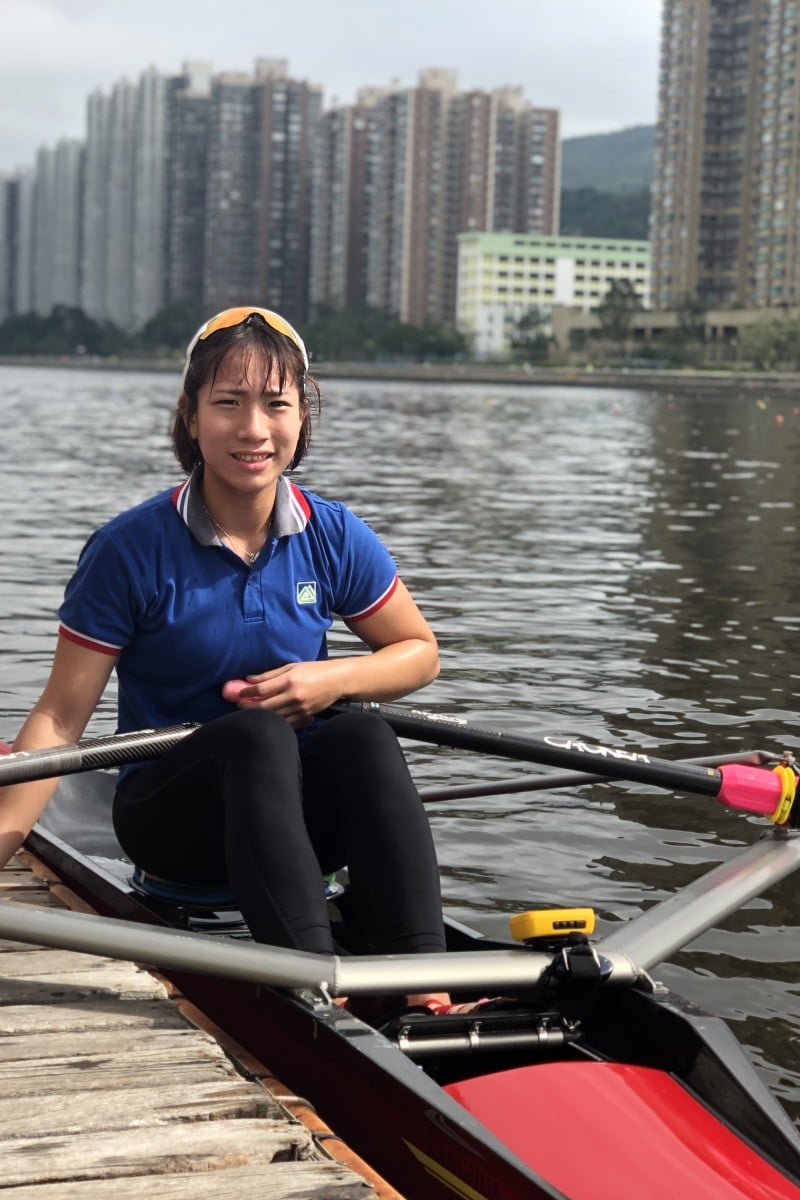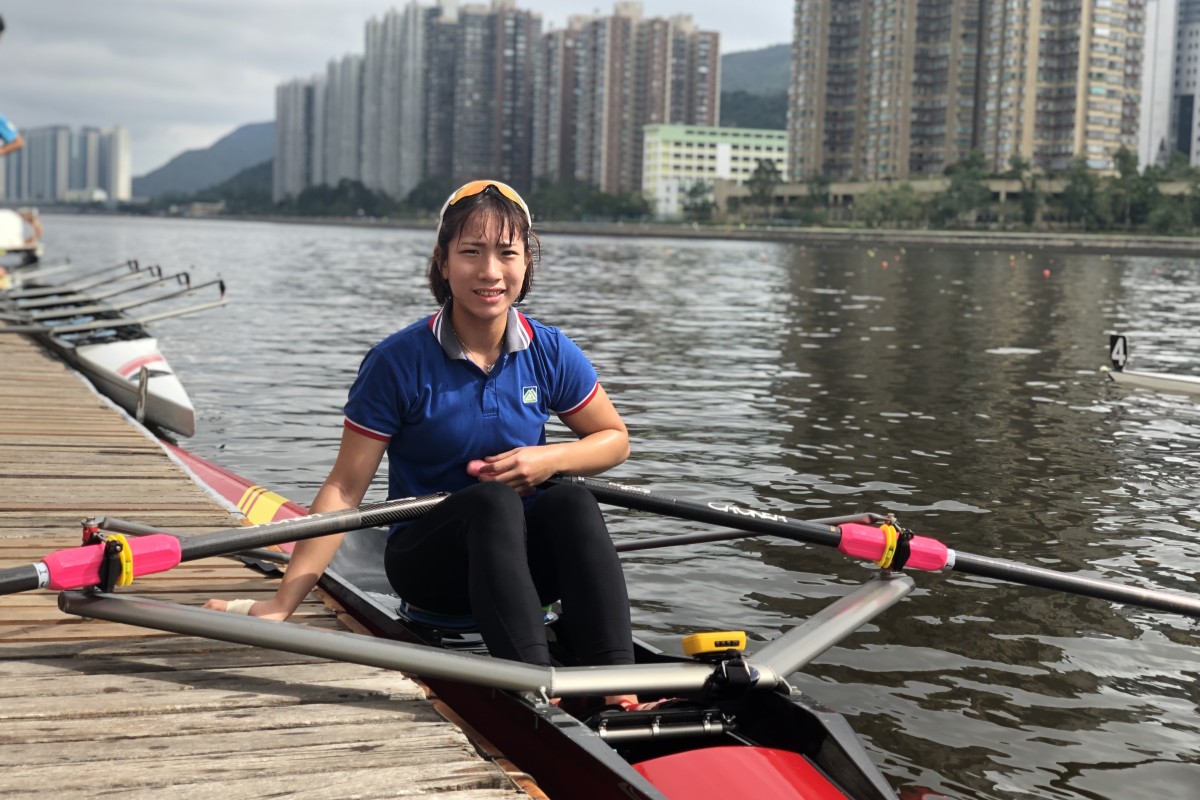
Programme overseen by the Hong Kong Sports Institute and Lam Tai Fai College allows for both studying and training
 With no more 3am starts, Ching-yi's training is a lot more effective.
With no more 3am starts, Ching-yi's training is a lot more effective.Before becoming a full-time athlete, Tsai Ching-yi’s daily routine looked like this: she woke up at 3am to commute to the Sha Tin Rowing Centre, ready to begin her morning training session at 6am. Then, she would head to school like other students. At 4pm sharp, she would hurry straight back to Sha Tin for her second round of training, but no matter how hard she tried, she was always late. After two hours of intense training, she could finally go home – but there would still be a pile of homework to attend to before she could actually rest.
For Ching-yi, 24 hours in a day was simply not enough.
In September 2017, she decided she could no longer keep up this routine. She enrolled in a part-time secondary programme for full-time athletes.
Overseen by the Hong Kong Sports Institute and Lam Tai Fai College, the programme offers a flexible school timetable to make room for young athletes’ packed training and competition schedules.
Several months after making the switch, Ching-yi was joined by her teammates Leung Sin-hang and Cheng Cheuk-kwan, who had also been struggling to keep up with both their studying and training. “Before switching schools, I felt kind of useless because both my academic results and rowing performance were mediocre,” said Ching-yi. “But now I’m seeing improvements in my rowing because I can train as hard I want, get enough rest, and not having to worry about school work.”
“In the past, if you chose sports, then you had to give up on studying. It’s really nice to be given more options now,” Cheuk-kwan added.
Around eight months into being full-time rowers, their hard work began to pay off. At the 2018 Asian Rowing Junior Championship last June, Cheuk-kwan earned her first Asian Junior champion title with her new rowing partner. The victory was a far cry from her painful defeat at the Junior Women’s Pair event in 2017.
“This gold meant a lot to me,” said Cheuk-kwan. “In 2017, my old partner and I lost by one second and gave away our chance to be in the Youth Olympics. I kept telling myself, ‘I must get the gold medal next year’ – and I did.”
Cheuk-kwan, Sin-hang, and Ching-yi also dominated the Hong Kong School Rowing Championships last November. Cheuk-kwan partnered with Sin-hang to win gold in the Under 19 Girls’ 2X event, while Ching-yi was crowned champion in the Under 19 Girls’ 1X event.
The 16-year-old rowers are grateful for the support they get from the Institute, which provides them with a monthly allowance, accommodation and meals. It’s one of the reasons they give their all during training sessions and competitions. But not wanting to let anyone down is as much a source of stress as it is motivation.
“Take the school rowing championships, for example; we were expected to win. But we were still worried that we would be defeated by part-time rowers,” said Ching-yi.
Still, Ching-yi believes the only way to overcome this fear is to persevere through tough trainings, even when you don’t feel like it.
“I used to make lot of excuses or even pretend to be sick to skip training,” admitted Cheuk-kwan. “But now we take training very seriously, and I think we’re more determined than before,” added Cheuk-kwan.
The rowing trio are looking forward to start of the new sporting season in April, having spent the last few months building up their strength. Cheuk-kwan’s long-time goal is to take part in more international tournaments, including at least one Asian Games at some point in her rowing career.
“In two years’ time, I’ll be 18 and can start taking part in senior competitions. The experienced rowers from Hong Kong did very well in the last Asian Games in Jakarta. I know it takes a lot of effort, but I want to be like them.”